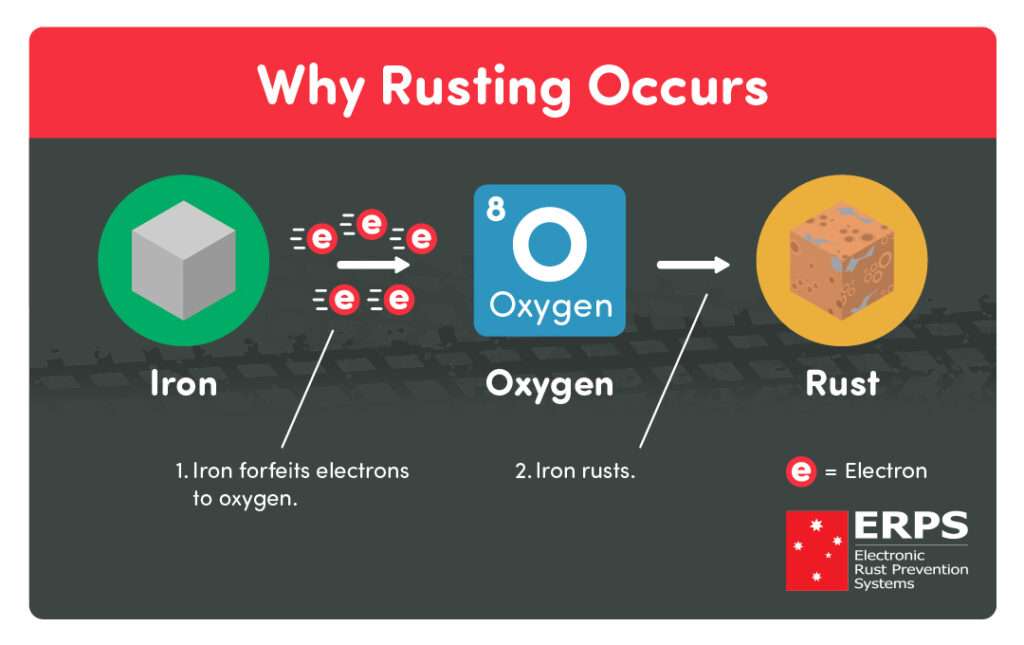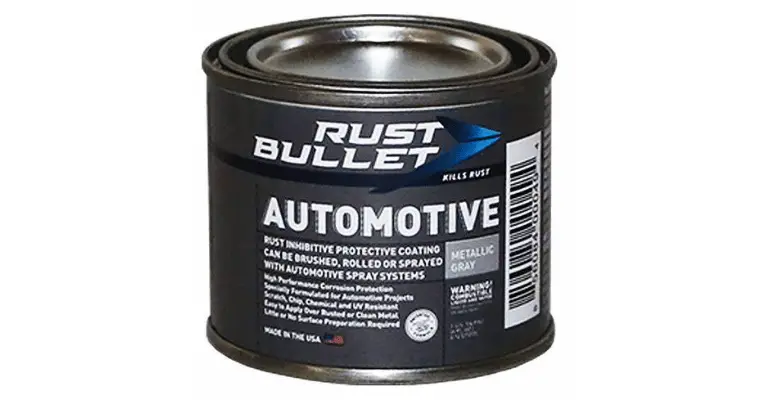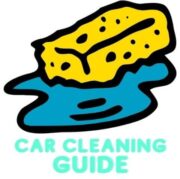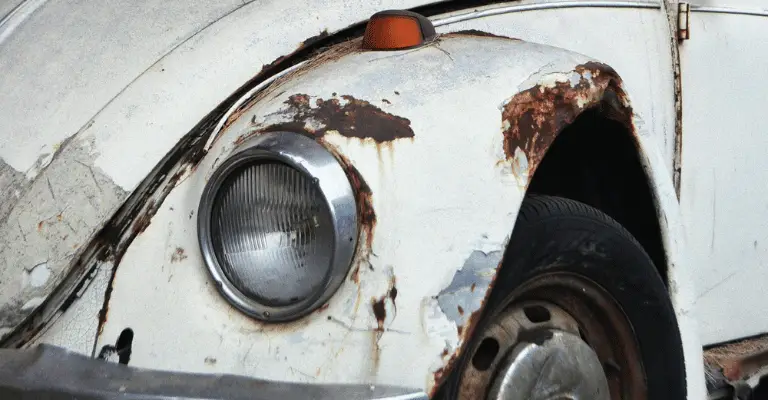- How to Clean Car Carpets Quick and Easy - July 10, 2024
- Can You Touch Up Clear Coat? Yes and No (Here’s Why) - November 25, 2023
- How To Wax A Car By Hand: A Comprehensive Guide - November 14, 2023
Last Updated on November 4, 2023 by Chase Manhattan
Rust is often one of the realities of owning a car. From weather conditions to beachside living, there are many different reasons why rust makes an appearance. But that doesn’t mean you should let it run its course.
Rust is not a purely superficial or cosmetic problem. When left, it can cause serious problems that are both tedious and expensive to fix. Fortunately, by learning how to stop rust from spreading on a car, you can keep your vehicle looking its best from exhaust to hood all year round.
Quick Navigation
How Does Rust Develop?
Rust forms due to a chemical process called oxidation. Oxidation is what happens when iron reacts to moisture by transforming into iron oxide, also known as rust. Because many car parts, including the axles, frame, wheels, and engine components contain iron or iron alloys, they’re vulnerable to the development of rust if they don’t have the proper maintenance and protection.
Besides moisture, there are other factors involved in rust developing on your car, such as:
- Climate – Cars may be designed to withstand tough conditions, but weather can destroy the exterior of your car, especially if it’s left unprotected. Rain, wind, snow, and sleet can all contribute to the development of rust.
- Salt – Salt makes iron lose its electrolytes faster, which can speed up the rusting process. If you live close to the ocean or frequently drive over salted roads, your car could be more susceptible to rust.
- Poor maintenance – A lack of proper maintenance is the most common reason for rust development. With a consistent car maintenance routine, you can catch the rust before it sets in too deeply and causes lasting damage.

While sometimes the conditions might make it hard to avoid, you can always learn how to stop rust from spreading on a car and repair your vehicle so it’s good as new.
Related article: How To Keep Rust Bubbles From Spreading
How To Prevent And Treat Rust On Your Car
When rust develops on your car, two things can happen. First, it damages the surface of your car’s body and the paintwork, making it appear crusty, worn, and unsightly. This depreciates your car’s value and makes it harder to upkeep or re-sell at a later date.
Secondly, it can cause serious damage to the body or mechanics of your car. Rust weakens metal and makes it susceptible to breaking or tearing, thus leaving you with a lot of expensive repair work on your hands. However, you can avoid this if you know how to stop rust from spreading on a car—or from starting in the first place.
Keep your car clean and dry
One of the simplest and easiest ways to prevent rust from developing on your car is to keep it as dry and clean as possible. The less moisture your car is exposed to, the less likely it is to develop rust.
Grime and dirt build-up can trap moisture on the surface of your car, creating an environment that’s extremely conducive to rust. By washing and drying your car with high-quality car-cleaning products, you can rid its surface of all unnecessary moisture and discourage rust from settling in.
Related read: Are Touchless Car Washes Safe?
If you live close to a beach where the air is salty, washing your car regularly is even more important. Experts recommend washing your car every two weeks to remove salt build up and to always dry it properly afterwards too.
Regularly wax your car
One of the best ways to stop rust from spreading on a car is to create an environment where oxidation won’t thrive. Waxing your car on a regular basis is a highly effective way of stopping it in its tracks. Wax creates a barrier between your car’s metal surface and any moisture that hangs in the air, limiting the chance of oxidation occurring.
You can apply wax to the surface of your car every three to four months for optimal results. Just remember to give it a good clean beforehand to get rid of excess dirt. It’s also a good idea to protect your rims with a polish or wax, or to have them electroplated with chrome, nickel or zinc to minimize oxidation.
Fix dents and scratches immediately
When your car gets a dent or a big scratch, it exposes the metal under the paintwork and makes it more susceptible to forming rust spots. These spots quickly grow and can become a major issue.
If you know how to stop rust from spreading on a car, you’ll also know that any chip in the paintwork is a weak spot, and you need to fix it as quickly as possible.
Protect your car with a cover or in garage
The next step in rust prevention is to keep your car covered as much as possible. Exposure to the elements is one of the fastest routes to rust build-up, which means that finding a covered parking space is crucial for rust prevention.
If you don’t have a garage or undercover parking, invest in a waterproof car cover to protect it from moisture and weather activity. Covering your car in winter is also a great way to extend its lifespan and maintain its condition, especially if it’s a classic.
Use the right products
You don’t have to deal with rust on your own. There are plenty of products on the market designed to both passively prevent and actively treat rust on cars, such as:
- Rust prevention spray
- Rust converters
- Rust inhibitors

These products can be directly applied to vulnerable areas of your car or parts of it that have already started to rust. Either way, remember to follow the instructions of the product carefully for the best results.
If you have large sections of thick rust to contend with, sand them down with fine sandpaper from an auto shop to get rid of the texture before applying the necessary product. And if the task ever feels too big to handle, take your car to a professional mechanic for advice and guidance.
Keep reading: How Often Should You Wax Your Car?
Conclusion—Rust Is A Defeatable Enemy
Knowing how to stop rust from spreading on a car is important, no matter what vehicle you drive. While older cars may be more susceptible to rust, new models can rust too.
By keeping your car clean and dry, covering it in harsh weather, using the right products, and dealing with the signs of rust as quickly as possible, you can keep your vehicle in good condition, no matter what its age!

